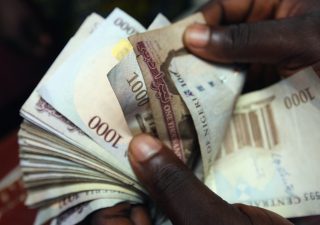As part of its plans to finance the recently signed 2018 Nigerian budget, the federal government revealed through its Debt Management Office (DMO) that it plans to raise 2,8 billion dollars in Eurobonds. Patience Oniha, Head of Nigeria’s DMO also announced that her office has sent requests to banks for bond offerings pending approval from the Nigerian House of Assembly.
“We will explore all options keeping in mind our twin objectives of extending the tenor of the debt stock and lowering costs,” she told Reuters while announcing the plan.
Nigeria raised its biggest Eurobond issuance ever in November last year, when it successfully raised $3 billion in a 2-part international bond sale. The first part will yield 6.5 percent for a 10 year tranche, while the second part, which is for longer notes, will yield 7.625 percent for a 30 year period. Most of that money went into funding the 2017 budget, while the rest was used to refinance maturing local-currency bonds.
Nigeria also raised $2.5 billion in Eurobonds in February this year, selling a 12-year note at 7.1 percent to raise $1.25 billion and a 20-year tranche at 7.7 percent.
The latest Eurobond issuance means Nigeria’s external debts have increased from 23 percent to 60 percent, while simultaneously reducing domestic debts from 77 percent to 40 percent. Overall, the country now has 23 percent of its debt coming from foreign borrowing. It also means Nigeria’s foreign reserves could cross the $50 million mark before the end of the year, a target that was predicted at the beginning of 2018.
Nigeria’s President Muhammadu Buhari signed the country’s 2018 budget into law last week, midway through the country’s financial year. The 9.12 trillion Naira budget is the highest ever in the history of the country, and possibly boost the building of infrastructure ahead of Nigeria’s presidential elections in 2019.
The IMF has warned that it doubts Nigeria’s capacity to repay its debts, amidst its rising debt profile, and has advocated for the country to generate more revenue through domestic means. “Nigeria’s debt stock figure, which is 20 to 23 per cent of Gross Domestic Product, is still quite low by any standard. The issue is capacity to repay the debts. So, interest payment to revenue is an issue,” said the IMF Mission Chief for Nigeria, Amine Mai, in Mary.
Other African countries that have issued Eurobonds in recent times are Egypt, Morocco and South Africa; all 30-year dollar bonds.








